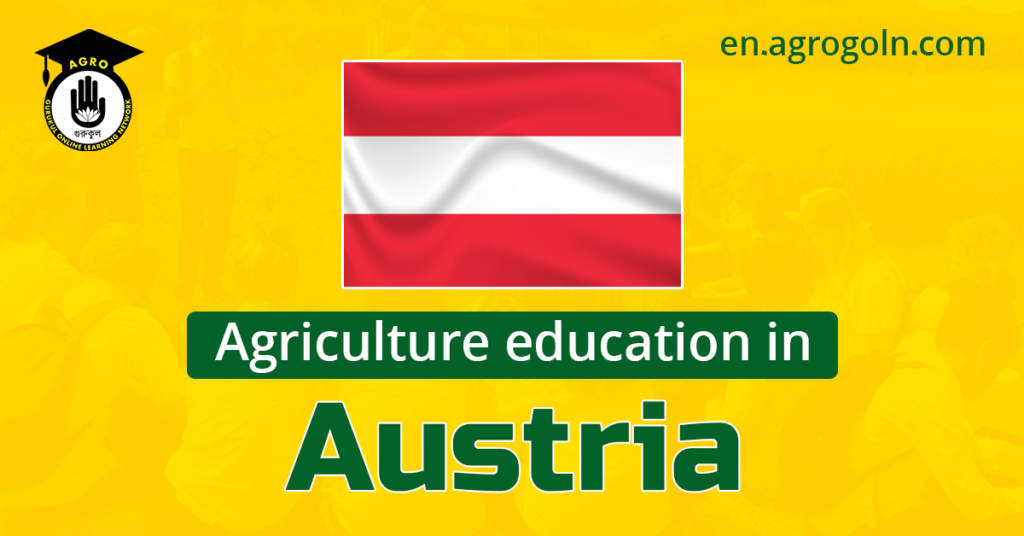Agricultural Education in Austria. Agricultural education is an integral part of Austria’s education system and national identity. It provides students with a comprehensive understanding of the practical and theoretical aspects of farming, with a strong focus on sustainable practices, local biodiversity, and the business aspects of running a farm. This article will delve deeper into the structure, curriculum, and significance of agricultural education in Austria.
Agricultural Education in Austria
Historical Background
Austria has a long-standing tradition of agricultural education dating back to the late 19th century, when the first agricultural schools were established. These early institutions aimed to modernize Austrian agriculture in the face of rapid industrialization and to foster a scientific approach to farming. Over the years, this form of education has evolved to meet the needs of a changing society and global environmental challenges.
Structure of Agricultural Education
Agricultural education in Austria is segmented into different levels. Students can start as early as lower secondary level, where the curriculum introduces the basics of agriculture, forestry, and gardening. This can continue into higher secondary vocational schools, colleges, and eventually university programs specializing in various facets of agriculture.
Higher secondary agricultural and forestry schools (Höhere land- und forstwirtschaftliche Schulen) offer a five-year course that leads to the Reifeprüfung, which allows access to university-level education. These schools blend theoretical instruction in sciences, economics, and humanities with practical training in agriculture and forestry.
Austrian universities and Fachhochschulen (Universities of Applied Sciences) offer bachelor’s, master’s, and doctoral programs in agricultural sciences. These programs often include specializations in areas such as crop and animal sciences, agricultural economics, or environmental sustainability.
Curriculum and Instruction
The curriculum in agricultural education programs combines traditional agriculture subjects with an emphasis on modern farming techniques, technology, and sustainable practices. Subjects often include animal husbandry, crop production, soil science, farm management, agricultural economics, environmental science, and organic farming.
Practical training forms a significant part of the curriculum, with students gaining hands-on experience in school-owned farms and agricultural businesses. This experiential learning approach helps students apply theoretical knowledge to practical situations, preparing them for their future careers.
Sustainability in Agricultural Education
Austrian agricultural education places a strong emphasis on sustainability and environmental responsibility. This is evident in the increasing focus on organic farming methods, biodiversity, and climate change mitigation in the curriculum. The goal is to train farmers who can contribute to Austria’s commitment to environmental preservation and sustainability in the agricultural sector.
The Role of Agricultural Research
Research plays a pivotal role in Austrian agricultural education. Universities and research institutions are heavily involved in studies related to agriculture, from improving crop yields to exploring new sustainable farming methods. The findings from these research projects are then integrated into the curriculum, ensuring that the education students receive is up-to-date with the latest advancements in the field.
Agricultural Education and Rural Development
Agricultural education contributes significantly to rural development in Austria. By providing high-quality, practical education, these programs equip students with the skills necessary to innovate and sustain rural economies. Graduates often return to their rural communities to implement their learning, leading to improvements in local agriculture and contributing to the overall development of these areas.
Challenges and Opportunities
While agricultural education in Austria is robust, it faces challenges. One such challenge is the decreasing interest in farming as a career among young people. However, this also presents an opportunity to reshape and promote agricultural education as a pathway to a meaningful career in sustainable development and environmental stewardship.
Conclusion
Agricultural education in Austria, with its blend of practical training and scientific learning, plays a vital role in maintaining the country’s strong agricultural heritage and meeting future challenges. Through its focus on sustainability, it is training a new generation of farmers who are not only equipped to nourish the nation but also to protect the environment and contribute to rural development. As the world grapples with the challenges of climate change and food security, the importance of such an education cannot be overstated.
See more:

